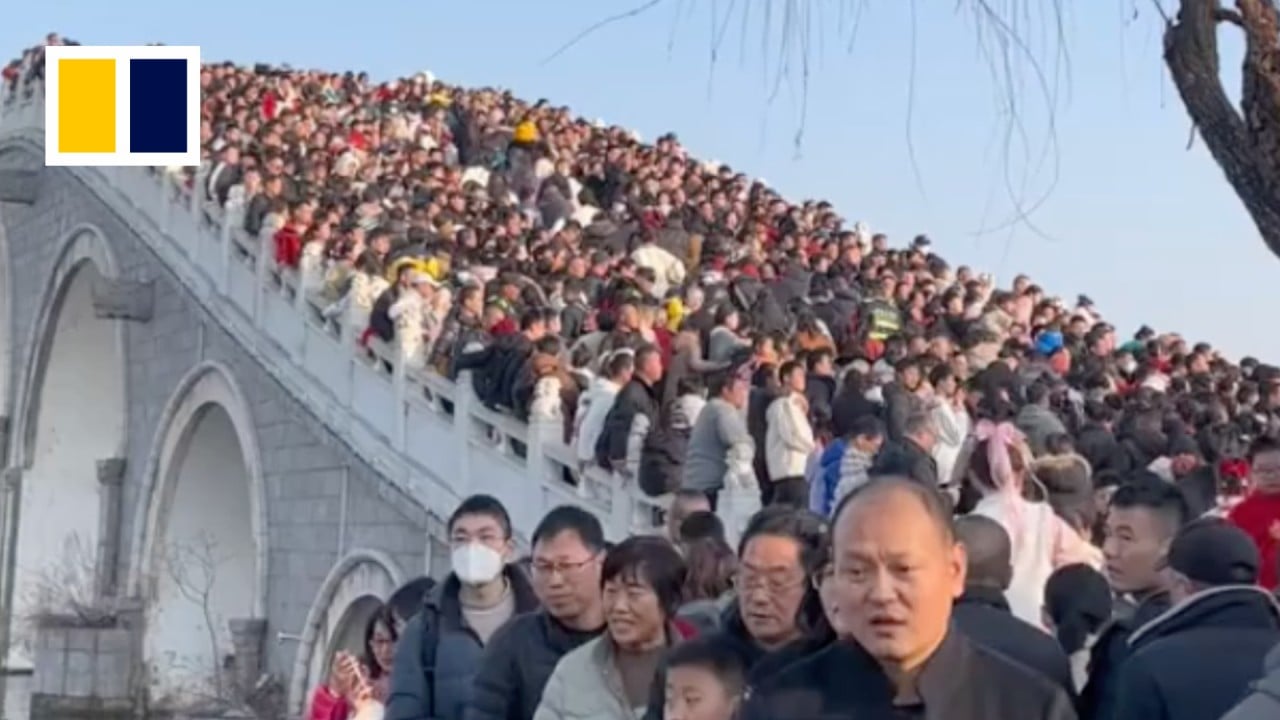
China urgently needs to issue ‘most effective’ cash coupons to boost insufficient consumption, economist says
- Prominent economist Teng Tai says cash coupons are the ‘most effective way’ to encourage consumption
- Recovery in consumption was a major source of growth last year, but Beijing has failed to heed calls to issue cash coupons and consumption vouchers
China should refrain from low efficiency infrastructure investment, and instead learn from other economies and issue cash coupons to consolidate consumption growth and drive up the overall economy, a prominent economist said.
Teng Tai, director at the Wanb Institute in Beijing, said that China should learn from the likes of the United States, Japan, South Korea, Australia and Singapore.
“The most effective way to encourage consumption is to issue cash [coupons],” he said in an interview with Chinese media Yicai published earlier this week.
“As long as a person has money, they’ll spend. A one-dollar cash coupon will multiply to three to five dollars of spending.”
China is in more urgent need to issue cash coupons
“Compared with Europe, the US and Australia, China is in more urgent need to issue cash coupons,” Teng added.
He said money saved from eliminating inefficient infrastructure can be turned into disposable income, which stood at 52 trillion yuan (US$7.2 trillion) in China in 2022.
This was regarded as “a low level”, that accounted for 43 per cent of China’s gross domestic product, Teng added.
China’s Lunar New Year holidaymakers head to distant travel destinations
China’s per capita disposable income stood at 39,218 yuan (US$5,455) in 2023, compared with the US$61,242 in the US.
“We have to admit that consumption is not another style of waste. Consumption is where an economic circle starts and ends. The insufficient consumption has been one of the blocking points in the economic circle. We have to address them,” Teng said.
A recovery in consumption was a major source of growth in China’s post-pandemic rebound last year.
But analysts also noted a meaningful decline in average spending, which is indicated by a drop of 9.5 per cent in tourism revenue per person compared with the pre-pandemic level in 2019.
“The sustainability of this robust spending pattern remains a key variable in the macro outlook,” Louise Loo, lead economist at Oxford Economics, said on Monday.
“More policy easing is clearly necessary, amid a persisting property downturn and still weak consumer confidence.”
Beijing has so far failed to heed to continuous calls from economists to issue cash coupons and consumption vouchers as part of proposals to stem the risks arising from a sluggish post-pandemic recovery.
Only fixing the true issues leading to a reduction in household spending (thus increase in savings) are likely to boost economic deficits
Christopher Beddor, deputy China research director at Gavekal Dragonomics, said that there is a constant argument about focusing on the supply side to create jobs, which is the “only” sustainable way to boost incomes and spending.
“Top policymakers are fundamentally very sceptical about providing cash to households … They have also occasionally voiced worries about ‘welfarism’, and some Chinese economists have argued that stimulating through infrastructure building at least creates lasting assets,” he said.
“I, however, argue that neither [cash or consumption voucher] schemes generate any lasting impact on [the] economy, and thus at best deflects from the issue at hand,” he added.
“Only fixing the true issues leading to a reduction in household spending (thus increase in savings) are likely to boost economic deficits.”


